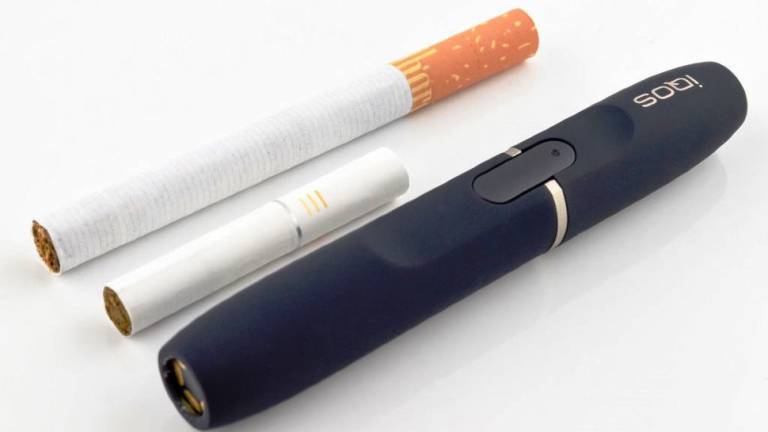KUALA LUMPUR: The Health Ministry (MoH) said today that that tobacco refills for heat-not-burn (HNB) IQOS devices do not need to carry pictorial warnings on its packaging as they do not come under the classification of a “cigarette” as defined in the law currently.
It said the current definition of a “cigarette” in the Control of Tobacco Control Regulation 2004 is “tobacco that is rolled up in a single or more wrapper of paper.”
MoH said the exemption from the ruling on pictorial warnings, was given due to the characteristics of HNB device tobacco refills, which despite being a tobacco product, emit vapour instead of smoke.
“At this moment, pictorial health warnings are only required to be put on those under the ‘cigarette’ category. The control is the same like other products such as cigar, cigarillos and etc.” MoH said in response to queries from theSun.
theSun had in the past week printed articles that raised concerns about the lack of pictorial warnings and safety of the new IQOS tobacco device marketed by Philip Morris International (PMI).
The ministry also revealed that all three tobacco companies in Malaysia, PMI, British American Tobacco (BAT) and Japan Tobacco International (JTI) have its own heated tobacco products (HTP) which are called ‘Heets’, ‘Glo’ and ‘Plum’ respectively, adding that all three products vary in how they are used.
According to the ministry:
>> PMI’s ‘Heets’ refills have tobacco rolled in aluminium foil and users can only consume with a special heating device called IQOS;
>> BAT’s ‘Glo’ refills, on the other hand, can be consumed with or without a heating device, and can be smoked like regular cigarettes, while
>> the specifications for JTI’s ‘PLUM’ are yet to be known.
Only PMI’s Heets refills and IQOS device are currently available in the market after they were launched by Philip Morris Malaysia (PMM) last month.
theSun however tested the Heets refill last week and discovered that it too can be smoked like a regular cigarette — contrary to claims that it can only be heated.
As such, should the ministry not impose pictorial warning requirements on both Heets and Glo refill packs as they can both function like regular cigarettes?
Asked if the MOH had conducted any study on the harm and ills of HND products, the ministry said although it has not approved any study related to the HNB products but parties in the World Health Organisations (WHO) Framework Convention on Tobacco Control (FCTC) had assigned WHO to conduct more research on the effects of HTP.
theSun also queried the MOH on the lower pricing of the currently available Heets refill which is priced at RM14 compared to RM17.40 for a pack of premium cigarettes.
“With regards to the price, the approval is based on product segment, and because of its ‘non-cigarette’ tobacco category, the price is such. For example, Cigarillos are priced at RM9.50 per pack.
“To avoid indirect promotion, our `spirit’ of approving tobacco product prices is to make sure the price is not lower than the price approved in the same segment.
“Therefore, the tobacco companies decide the pricing and we will base this of the previous prices approved.” the MOH said in its statement which was at best sketchy and deficient to the queries made by theSun.
Questions such as the approval of HNB products by the MOH being counterproductive to its anti-smoking efforts of reducing or controlling smoking among Malaysians and on what grounds did the ministry allow it to be marketed went unanswered.
In short, HNBs have been allowed to be marketed in Malaysia without prior research to verify or authenticate claims by tobacco companies that they are a safer alternative to cigarettes.
Pictures courtesy of flickr and vaping360.









